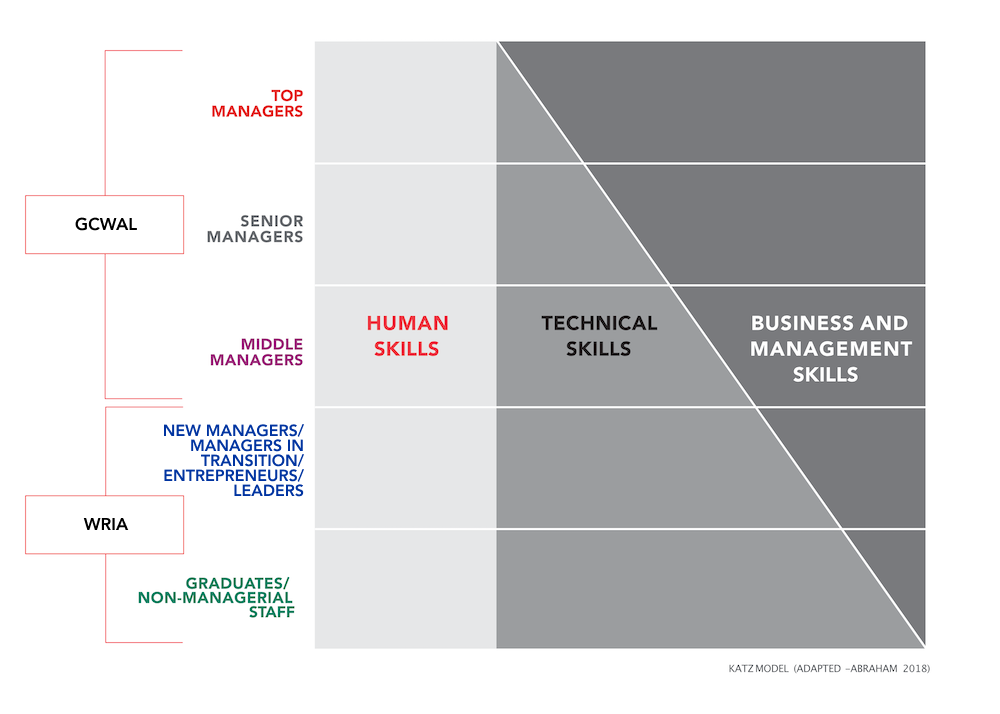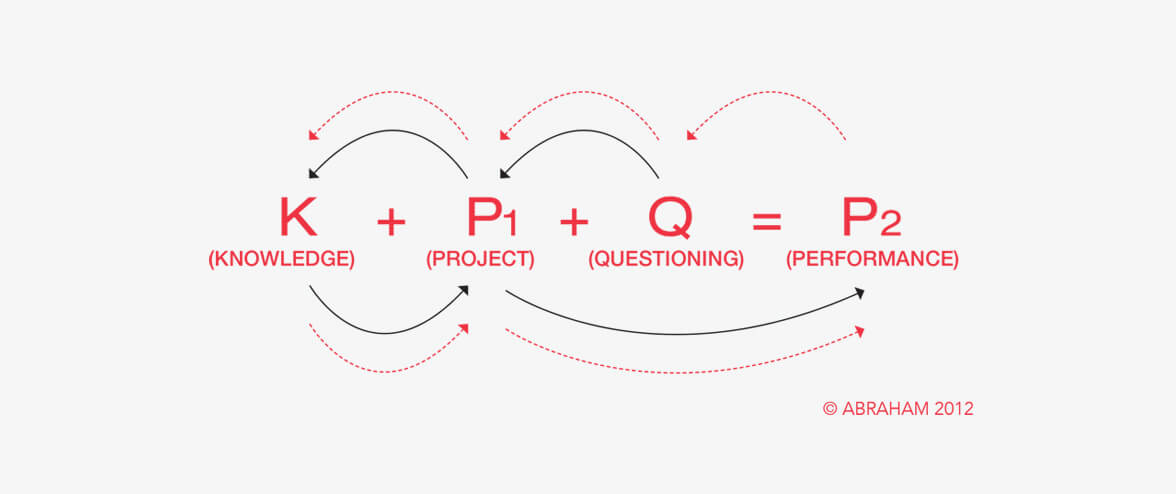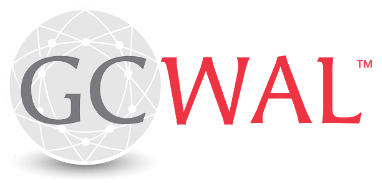Work Readiness Institute Australia (WRIA) is a subsidiary of Global Centre for Work-Applied Learning (GCWAL).
WRIA is committed to developing the human, business and management skills of people who are in the transition of change. It offers programmes using the Work-Based Learning (WBL) approach for:
- graduates and non-managerial staff, and
- new managers and managers in transition
Whilst GCWAL offers change management programmes for middle, senior and top management, WRIA offers programmes for individual change and effectiveness.
The delineation of the programmes offered by WRIA and GCWAL is shown in the diagram which is an adaptation of the Katz Model.
WAL CHANGE PROGRAMMES

The diagram shows the skills that managers need to be effective in their careers. It can be seen that Human Skills are constant throughout the individual’s career starting from the entry level up to top management level. However, the need for Technical Skills decreases as the managers progress in their career. Conversely, the managers need more Conceptual Skills with every move into a higher management position. Therefore, the skills required in the human and conceptual areas of management learning will differ depending on the individual’s level in the organisation, be it graduate, middle or top management.
Since present and potential managers would have acquired technical skills as part of their higher or college education or previous work experience, our programmes focus only on developing the Human Skills and the Conceptual Skills (namely business and management conceptual skills).
All WRIA programmes use the WAL formula of
K + P1 + Q = P2 as shown below:

During a WRIA programme, participants will:
Reflect and apply relevant Knowledge (K) in the planning and implementation of the Work-Based Learning (WBL) project.
Critically reflect on a WBL Project (P1) to address a problem or need in their departments.
Question (Q) how to solve a problem by searching for ideas to help plan the WBL project.
Achieve Performance Outcomes (P2), including the WBL project outcomes, process outcomes, and learning outcomes.
Currently, WRIA delivers the following Individual Change programmes:
All programmes at WRIA use the WBL approach which require participants to:
- Identify a meaningful workplace issue,
- Address this issue through a real-life work-based project,
- Apply management and business concepts to the work-based project,
- Critically reflect on the work-based project in terms of the project outcomes and their personal learning outcomes.


